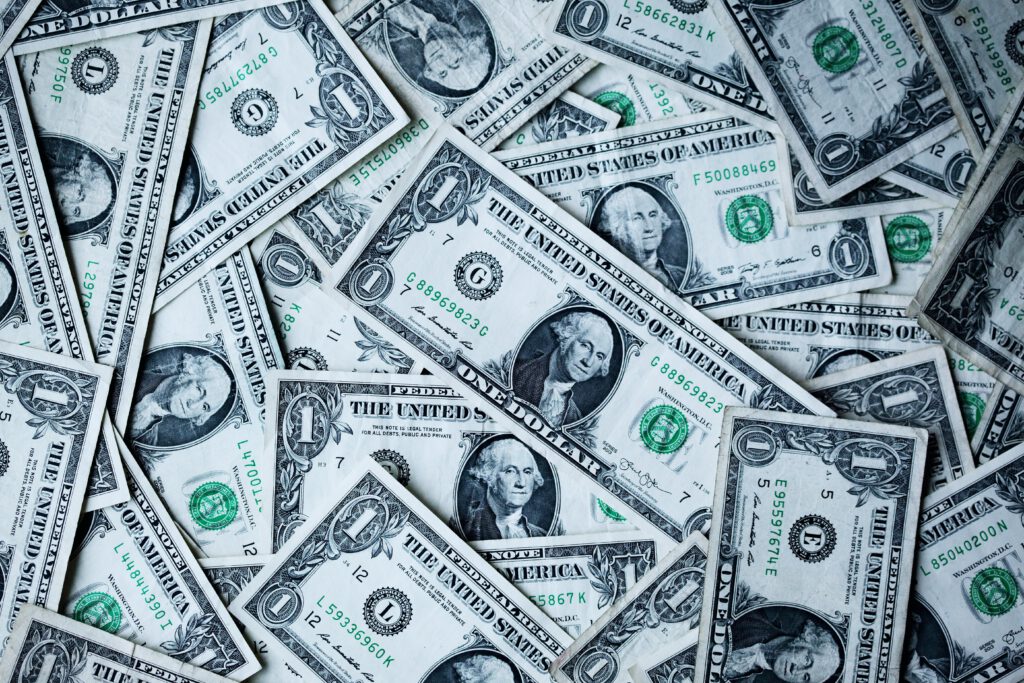April 2, 2023
#8: New Glossary Entry: “Money”
Money is the glue that holds together transnational investment chains, including those for farmland and agriculture. Yet “money” is not a natural thing, as Anitra Nelson, a prominent scholar writing on money and a world beyond money, argues in her new contribution to our glossary. Flagging the social character of money is important as investment discourses often suggest that “money works for you”. Rather, it is particular social and socio-natural relations that make money appear to produce “value”.
***

U.S.A. dollar banknotes photo. Source: Sharon McCutcheon 2018 on Unsplash.
Money is neither necessary nor natural: ‘You can’t eat money’. Money is a purely social imaginary and practice. Many different kinds of societies, especially in the past, have operated without using money or, where it existed trade was marginal to the prevailing mode of production [1]. Yet capitalism, a global phenomenon today, can neither operate nor be defined without recourse to money. Capitalism is a market-based society organized around money making more money, where money is a ‘universal equivalent’.
Such an equivalent is a universal measure and medium at the hub of markets, informing calculations made over what is produced, where, how and by whom. It is the main term in everyday transactions that rotate around prices, taxes and, say fees paid to financial intermediaries such as asset managers. Through time, money also functions as a store of value between transactions; as a means of payment in loans that incur repayments with interest; and as a means of investment in the expectation of profits.
Key matters over which theorists of money divide include whether money is primarily a measure of value or a medium of exchange, and the character of the value it represents. Theories of money divide loosely into credit and commodity theories of money. State theories of money are often a sub-category of credit theories of money [2]. Money is seen either as a societal credit or claim symbolizing a right to future marketed goods and services (and future income streams), or it is based on a commodity (say gold) said to represent value per se. Some theories combine both aspects. Marx’s theory of the money commodity can be seen, at least in part, as a credit theory of money, with state money as a subsidiary type [3].
Today theories of money integrate analyses of certain aspects of financialization, such as the rise of the money management industry, the disappearance of cash, digital currencies and so-called alternative monies. Radical monetary reforms are common in postcapitalist analyses, some arguing that abolishing money is a necessary if insufficient step in transforming to a more socially equitable and ecologically sustainable future — no money, no capitalist practices [4].
[1] Sahlins M (1972) Stone Age Economics. Chicago: Aldine Atherton Inc. [2] Schumpeter J (1986) History of Economic Analysis. London: Allen & Unwin. [3] Nelson A (1999/2014) Marx’s Concept of Money: The God of Commodities. Abingdon: Routledge. [4] Nelson A (2022) Beyond Money: A Postcapitalist Strategy. London: Pluto Press.